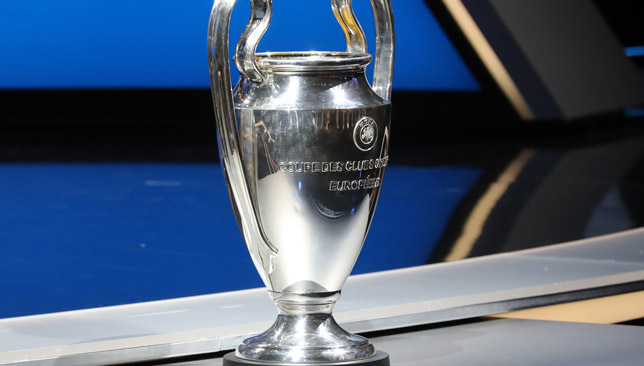
The Champions League may remain extremely profitable for UEFA and the 32 clubs which compete each year; an incredibly popular event with around 200 million people worldwide tuning-in for May’s final between Real and Atletico Madrid and retains enough of an allure to dictate a player’s preference when it comes to transfers but, as a competition, it’s suffering a crisis of confidence.
Leicester City make their debut this season but their appearance has highlighted a fundamental growing issue with the Champions League: it’s overall predictability.
As inconceivable as it was to imagine Leicester winning the Premier League title, the planets were able to align for them in England with the country’s elite all going through poor seasons coupled with the relative financial parity in the division and their own brilliant form over 38 matches.
Never mind it being improbable to envisage the Foxes lifting Old Big Ears in Cardiff next June, it’s illogical to even imagine a Leicester-esque team winning the trophy.
With a few exceptions, the world’s best players are now essentially stationed at three clubs: Barcelona, Real Madrid and Bayern Munich, which is a significant part of the reason why it’s seven years since at least two of that trio failed to make the semi-finals.
There is no room for the underdog at Europe’s top table, or even the nouveau riche. Paris Saint-Germain and Manchester City have lavished hundreds of millions on their squads but have just one last four appearance between them – City’s incredibly meek 1-0 defeat to Madrid last season. There is a glass ceiling and it’s growing increasingly hard to crack.
It's matchweek! #UCL pic.twitter.com/eSItcBEm0P
— Champions League (@ChampionsLeague) September 12, 2016
Atletico Madrid and Juventus represent the only two clubs who have been able to break it. But the Bianconeri are now five-time Serie A champions and hold a domination over their league akin to Bayern, PSG and Spain’s ‘Big Two’.
And while Los Rojiblancos’ rise retains a sense of romance about it, they are still able to spend at least €50 million in a summer transfer market. It says a lot about the current state of the tournament when Atletico are considered the closest to a genuine outsider.
The Champions League in its post-1992 form has always been a playground for the elite but it’s the overall lack of variation that is damaging. The riches gleaned from continual participation has helped fuel super clubs who aren’t really tested until they reach the quarter-finals.
There has been a predictability about the match-ups in recent seasons – PSG v Chelsea; Arsenal v Barcelona; Juventus v Bayern; Atletico Madrid v Barcelona – which is bound to happen if the restrictions on others trying to break into the elite are so hard.
There’s nothing stopping Club Brugge, Ludogorets or Dinamo Zagreb joining the party but if those clubs were to foster a squad capable of challenging the elite, it’d be broken up either in a summer or January transfer window. That’s the natural food chain of football, which isn’t that different in theory from previous eras but the wealth of Europe’s biggest clubs have only exacerbated the situation.
It’s also struggling to make a dent in new markets in China and the United States, mainly due to the mid-week kick-off time of 20:45 in central Europe being mid-day in America and the early hours of the morning in the Far East. That’s against the Premier League’s more sociable afternoon weekend hours.
But what maintains interest is the quality of the players on show, and once again the competition will play host to most of the world’s best.
Nobody will ever want to stop watching Lionel Messi, Luis Suarez, Neymar, Cristiano Ronaldo, Sergio Aguero etc in action.
There will be sensational goals, moments and individual records will be broken but the competition needs more than a few fleeting glimpses of genuine contests until the semi-final stage, which is where it only seems to come alive.
UEFA have tweaked the seedings at the group stage ensuring the historically best 16 clubs – providing they’re not from the same country – can be drawn together. And groups B, E, G and H are genuinely difficult to call in this year’s competition; something that wasn’t necessarily true just two seasons ago.
But individual excellence is sure to reign supreme; something which can only carry it so far.
Ultimately, it needs a Leicester.
[interaction id=”57d5bf0960f05dde7e4b93f5″]